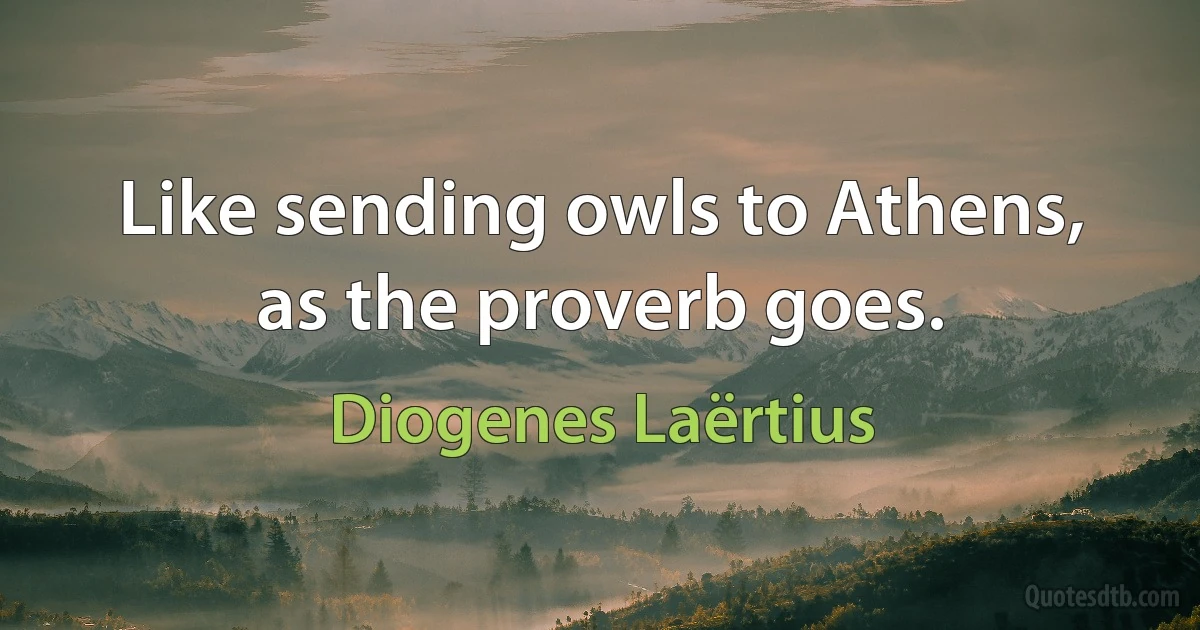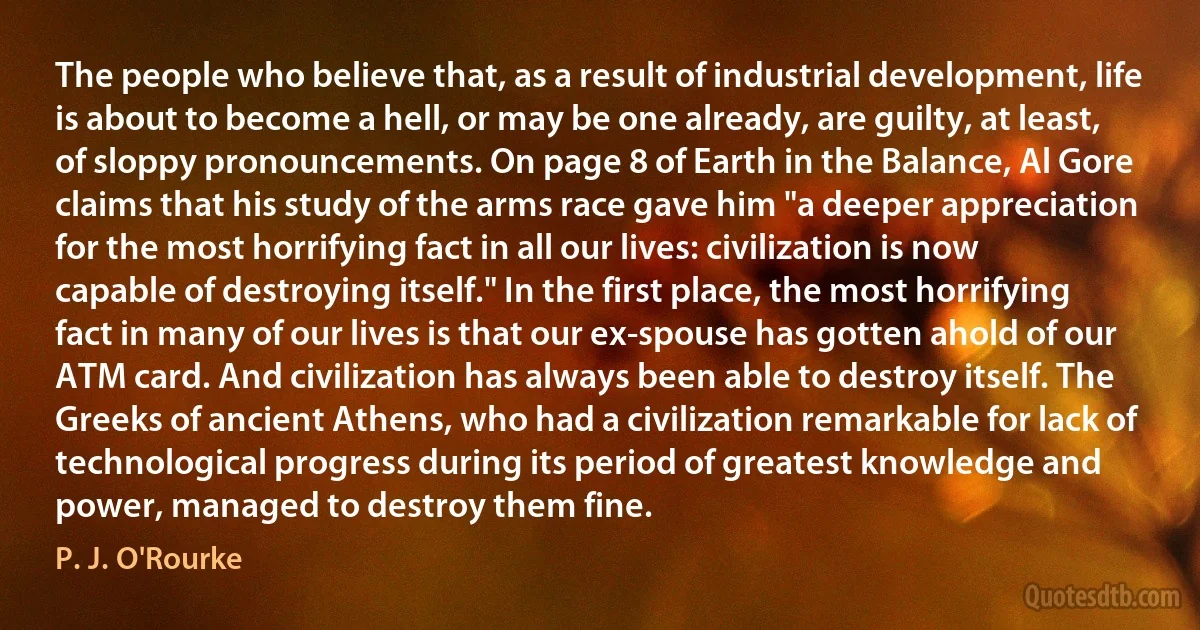Athens Quotes - page 3
On reaching Athens he fell in with Antisthenes. Being repulsed by him, because he never welcomed pupils, by sheer persistence Diogenes wore him out. Once when he stretched out his staff against him, the pupil offered his head with the words, "Strike, for you will find no wood hard enough to keep me away from you, so long as I think you've something to say."

Diogenes of Sinope
I am called wise, for my hearers always imagine that I myself possess wisdom which I find wanting in others: but the truth is, O men of Athens, that God only is wise; and in this oracle he means to say that the wisdom of men is little or nothing... as if he said, He, O men, is the wisest, who like Socrates, knows that his wisdom is in truth worth nothing. And so I go on my way, obedient to the god, and make inquisition into anyone, whether citizen or stranger, who appears to be wise; and if he is not wise, then in vindication of the oracle I show him that he is not wise; and this occupation quite absorbs me, and I have no time to give either to any public matter of interest or to any concern of my own, but I am in utter poverty by reason of my devotion to the god.

Socrates
I shall never cease from the practice and teaching of philosophy, exhorting anyone whom I meet after my manner, and convincing him, saying: O my friend, why do you who are a citizen of the great and mighty and wise city of Athens, care so much about laying up the greatest amount of money and honor and reputation, and so little about wisdom and truth and the greatest improvement of the soul, which you never regard or heed at all? Are you not ashamed of this? And if the person with whom I am arguing says: Yes, but I do care: I do not depart or let him go at once; I interrogate and examine and cross-examine him, and if I think that he has no virtue, but only says that he has, I reproach him with overvaluing the greater, and undervaluing the less. ...For this is the command of God, as I would have you know...

Socrates
He had a theory about it. It happened, and re-happened, because it was a city uninterested in history. Strange things occurred precisely because there was no necessary regard for the past. The city lived in a sort of everyday present. It had no need to believe in itself as a London, or an Athens, or even a signifier of the New World, like a Sydney, or a Los Angeles. No, the city couldn't care less about where it stood. He had seen a T-shirt once that said: NE YORK FUCKIN' CITY. As if it were the only place that ever existed and the only one that ever would.

Colum McCann
I myself have experienced the volcanic existential depths of the Greek language. It was during a performance of Medea by Tzeni Karezi at the Herod Atticus theatre in Athens, when she was pleading to the callous Jason to take pity on her and she used the word ' splachniasou'. 'Pity' is too weak a word to describe the emotional and psychological depths ' splachniasou' expresses. 'Splachna 'is the part of the body where a woman carries her unborn children, the very root of ontological existence. How deep can you get!

Angelique Rockas
Voulagris asked me to find film funding for what was to be the last but unfinished film project of Elia Kazan, a personal friend of Voulgaris. The subject of the film was the immigration of the Kazan family from the beleaguered Greek minority communities under Turkish rule in Asia Minor to the safe haven of the USA where the Kazan family settled. I arranged a meeting between Elia Kazan and the London based film financier Frixos Constantini of Poseidon Films at the Grand Bretagne Hotel in Athens. What followed from this meeting is that Mr Constantini put Elia Kazan in touch with Martin Scorsese a personal friend of Mr Constantini and who also runs the production company Cappa films. And so it was that these two giants of US cinema met for the first time.

Angelique Rockas
The method of exhaustion was not discovered all at once; we find traces of gropings after such a method before it was actually evolved. It was perhaps Antiphon. the sophist, of Athens, a contemporary of Socrates, who took the first step. He inscribed a square (or, according to another account, a triangle) in a circle, then bisected the arcs subtended by the sides, and so inscribed a polygon of double the number of sides; he then repeated the process, and maintained that, by continuing it, we should at last arrive at a polygon with sides so small as to make the polygon coincident with the circle. Thought this was formally incorrect, it nevertheless contained the germ of the method of exhaustion.

Thomas Little Heath
Homer, Hesiod, Pythagoras, Plato, and Cicero, just to name a few, all lived in pagan societies. Some of the greatest political and military leaders of all time, such as Alexander the Great, Pericles of Athens, Hannibal of Carthage, and Julius Caesar of Rome, were all pagans, or else living in a pagan society.

Brendan Myers
I think more of the little kids from a school in a little village in Niger who get teaching two hours a day, sharing one chair for three of them, and who are very keen to get an education. I have them in my mind all the time. Because I think they need even more help than the people in Athens.

Christine Lagarde
I was a halfback on an American football team in Athens, Greece - the Kississia Colts - where I went to high school, and we took the Cup my senior year. The downside, and somewhat unfortunate piece of information I have to pass on, is there were only two teams in the league because of the limited amount of Americans.

Greg Kinnear



